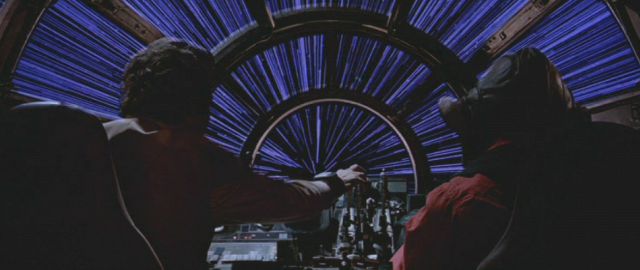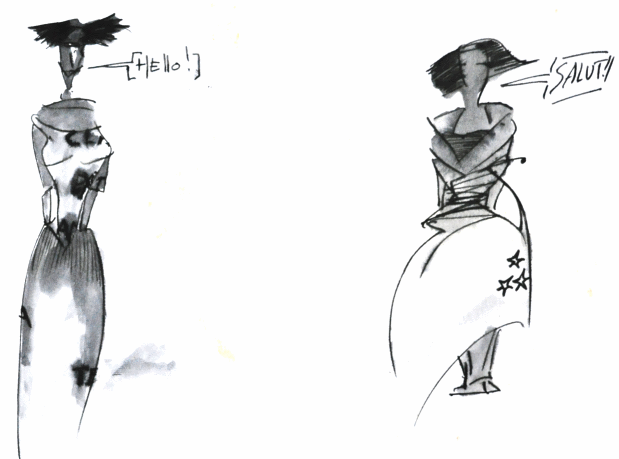Continuing with metrics…
Everybody can easily recognize a tune, a famous painting or the face of a friend. Not so for a computer, who must first digitize the information, and operate on this dataset to find similarities. Back in the beginning of computer era, people though that it would be easy to recognize characters or voice, but technology had hard time with these issues. OCR is still perfectible, while voice recognition is still not common (things are getting better, but Siri is still fallible) Continue readingSubluminal
Slower than the speed of light, but not by much
Category Archives: english
Welcome to the metrics
Everything that can be measured can be managed – Peter Drucker

Because measuring allows to make decision, by empowering evaluation and the comparison between elements, and thus to make optimal choices and perform improvements. But measuring something is not always easy. Continue reading
Essentialism
I recently came back from San Francisco and LA, where I had an interesting conversation on copyrights and the characteristics of a genuine piece of art.
It started with the fact that Shepard Fairey who created the iconic “Hope” picture of Obama has been sued by Mannie Garcia, the photographer who took the original picture and won (the case is not settled, though).
 This reminded me of the (more confidential) work of Andy Baio, who revisited Miles Davis in 8 bit : Kind of Bloop. Strangely enough, he was sued not for the music, but for the album cover which was considered to be too close to the original photograph !
This reminded me of the (more confidential) work of Andy Baio, who revisited Miles Davis in 8 bit : Kind of Bloop. Strangely enough, he was sued not for the music, but for the album cover which was considered to be too close to the original photograph !

Advices for a grad student
So you’re smart and want to start a PhD ? Here are a few considerations and advices that might help you.
I won’t tell you whether it’s worth or not. I loved it, some hated it. Do don’t do it to earn an extra diploma, but because you are truly interested in science. And I mean it !
(“Notes On The PhD Degree», “Passing the baton: what I’ve learnt during my PhD»).
*
* *
Continue reading
Faster than light !
No shame !
That’s what Nature said to those Prometheuses who wanted to steal the neutrinos from the realm of light (via).
No shame, because they put themselves at risk, claiming that the centenary rule that nothing can go faster than light might not be so unbreakable, while keeping their calm at all time.
- “point 5 past light !”
The best is their allegations re-opened the debate on what the speed of light really is the limit of.
Even though I’m not a specialist in special relativity, I was pleased to hear the crazy theories like this one :The speed of light is like a barrier. You cannot cross it, but you can be already on the other side, where the neutrinos might be.
Photons are exactly on the wall : they cannot go any slower or faster.(as heard on the radio).
I liked this picture because it relates to two (mis?)conception that I have.
Do it yourself
“Once upon a time, there were two kids in a garage, playing with electronics.
Later, they eventually founded HP.”

Arduino Uno
Arduino is a cheap (30$) ready-to-use open-source microcontroller, with built-in in-and-outputs, that lets you easily take control of electronic parts, such as LED, speakers, motors or servo, through programs you write in C. You can add ‘shields’, which allow you to implement new functionnalities, such as wireless communiction or data storage.
Continue reading
Bombykol
I recently read the book “Bad Science” by Ben Goldacre (it’s worth buying, but if you are remote, you can still visit the Pirate Bay… There is also some very nice material on this website).
It’s an excellent book, about great scientific scams, such as homeopathy, memory of water, alledged extra-benefits of highly expensive cosmetics and nutrition), and gives a good discussion about Placebo effect. Continue reading
The two cultures
I OCRed the manuscript of the famous “The Two Cultures” lecture by R.C. Snow.
You can find an html version, or read the original version in a poorly-scanned pdf.
I don’t want to choose. I guess I’m a bit oldschool.
I think that one possible definition of our modern culture is that it is one in which nine-tenths of our intellectuals can’t read any poetry. – Randall Jarrell
Here’s an extract of “The two cultures” :
The non-scientists have a rooted impression that the scientists are shallowly optimistic, unaware of man’s condition. On the other hand, the scientists believe that the literary intellectuals are totally lacking in foresight, peculiarly unconcerned with their brother men, in a deep sense anti-intellectual, anxious to restrict both art and thought to the existential moment. And so on.
Anyone with a mild talent for invective could produce plenty of this kind of subterranean back-chat. On each side there is some of it which is not entirely baseless. It is all destructive. Much of it rests on misinterpretations which are dangerous. I should like to deal with two of the most profound of these now, one on each side.
umop apisdn
umop apisdn
… is upside down, upside down !
It has been shot by a guy named Markus Kayser, who made a 3D printer that uses Fresnel lenses to focus sunlight in order to melt sand (hence the given name ‘solar sinter’). The focal spot is swept over a layer sand, which locally turn into a sort of glass. Layer by layer, this makes crazy stuffs!
Continue reading
The Visual Display of Quantitative Information
… is a serious issue. That’s what Edward. R. Tufte says in is book The Visual Display of Quantitative Information.

Cover of Tufte's book. The image is an old French train schedule considered by Tufte has one of the best information visualization ever.
